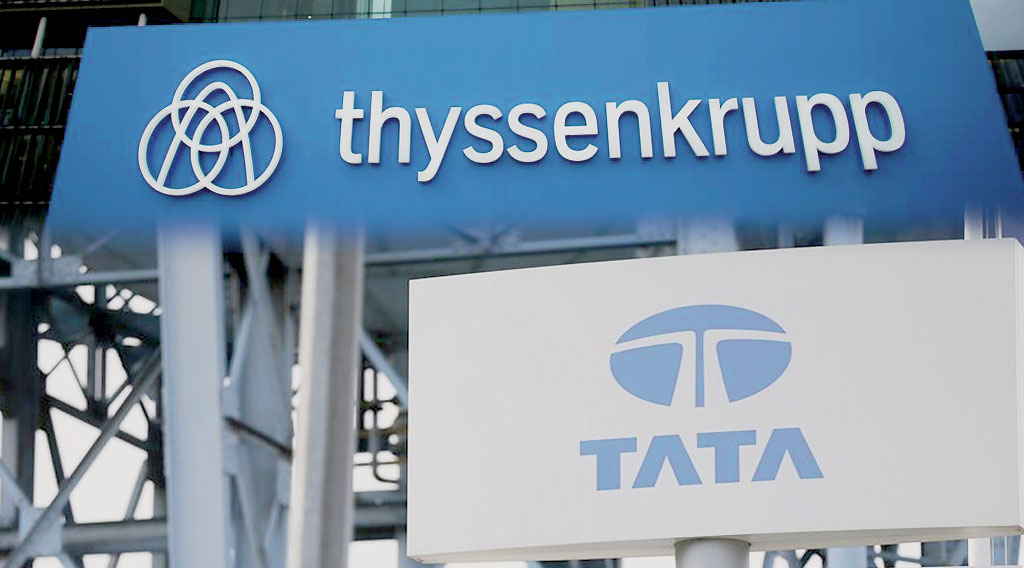

Berlin: German heavy industry giant ThyssenKrupp defended its disputed merger with India’s Tata Steel, saying its restructuring plan and the tie-up would help to secure tens of thousands of jobs.
The tie-up, announced end-September to form Europe’s second biggest steel works after ArcelorMittal, has sparked fears for 4,000 jobs in production and administration that hang in the balance.
Last Thursday, thousands of workers, some holding up signs saying “We are the future”, answered a call by metal works union IG Metall to protest at the group’s Andernach site in western Germany.
But ThyssenKrupp chief executive Heinrich Hiesinger defended the merger and planned overhaul at the conglomerate, saying: “We will perhaps cut thousands of jobs, but we will also secure tens of thousands of jobs with this co-enterprise.”
“The problem of overcapacity in Europe’s steel product remains unsolved, and we are convinced that this merger plan is the best solution to provide the means to become the number two in steel in Europe, and to generate synergies that we would not have been able to achieve on our own,” he said.
The merged holding company will be headquartered in the Netherlands and the deal should be completed by the end of 2018, added the German group.
Hiesinger’s comments came as the group posted an annual loss of 649 million euros ($768 million) for the year ending September, due mainly to a one-off charge related to the sale of Brazilian steel mill CSA.
ThyssenKrupp, which makes products ranging from submarines to car parts to elevators, had issued a profit warning in May about the exceptional charge.
Nevertheless, its annual loss was wider than the 554 million-euro loss predicted by analysts from the financial service Factset.
But the group’s other indicators appear healthy, as it posted sales of 43 billion euros, up nine per cent, that beat analyst expectations.
Crucially, over the financial year ending September 2017, orders also rose 18 per cent to 44 billion euros, lifted by demand for elevators and industrial components.
“The past fiscal year was a year of important decisions,” said Hiesinger.
“The sale of the Brazilian steel mill CSA and the memorandum of understanding on a joint venture of our European steel activities with Tata Steel created strategic clarity.” — AFP
Oman Observer is now on the WhatsApp channel. Click here



